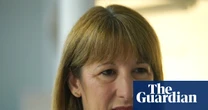Seven key swing states will determine the outcome of the presidential election this year. One spot on the map that almost certainly won’t is the Bay Area, where Democratic candidates have won all of the region’s nine counties in every presidential race since 1988.
And yet, while the politics of the Bay Area ostensibly couldn’t matter less to this race, in a lot of ways, they’ve never mattered more.
First, there are the candidates themselves.The presumptive Democratic nominee, Vice President Kamala Harris, would actually mark the Democratic Party’s first Bay Area presidential candidate in a general election. She would also almost certainly highlight on the campaign trail her career as a former prosecutor who spent more than a decade as San Francisco’s district attorney and California’s attorney general. During that time she not only forged deep connections with tech donors, but also went after tech giants for anticompetitive practices and cyber exploitation.
On the other side of the aisle, she’ll be running against a Republican ticket whose vice presidential nominee, J.D. Vance, was himself a venture capitalist and was effectively handpicked by his old boss and GOP mega donor Peter Thiel. Despite his “hillbilly” bona fides, Vance has staked at least part of his political career on bashing Big Tech, a stance that has made him an unlikely ally of the Biden administration’s antitrust enforcers.
Then there’s the money. Though tech’s billions have flowed into presidential politics for years, Silicon Valley’s donors have rarely focused so squarely on local grievances to explain their reason for giving. And yet, over the last few months, a small, but growing list of venture capitalists and tech executives have made a very public rightward shift toward former president Trump, and have repeatedly pointed to problems in their own backyard to explain that shift. During his remarks at the Republican National Convention earlier this month, investor and Trump booster David Sacks, for one, blamed “Democrat rule” for turning San Francisco into “a cesspool of crime, homeless encampments, and open drug use.”
It may seem unusual for San Francisco to serve as a proxy in the battle for the White House, but this moment was a long time coming. The group of investors and tech executives now backing Trump—including Sacks and his podcasting co-host Chamath Palihapitiya—includes some of the same people who have, for years, been leading the crusade against what they perceive to be the Bay Area’s “woke” politics. They blame progressive policies for issues of homelessness, drug use, and crime in the city, though data suggests homelessness and crime are now at 10-year lows.
Still, it’s this thinking that motivated the very real (if short-lived for some) tech exodus from San Francisco during the early days of COVID, drove the unsuccessful recall campaign against Governor Gavin Newsom, and fueled the successful one against former San Francisco District Attorney Chesa Boudin. Anger over COVID-19 lockdowns supposedly prompted Elon Musk to move Tesla’s headquarters to Texas, while fury over another new law regarding trans students’ privacy is now inspiring him to do the same with SpaceX and X.
Through these local battles, Musk and others have framed San Francisco, which last elected a Republican mayor in the 1960s, as a stand-in for all that’s wrong with Democratic policies. They’ve cast the city—and therefore, Democrats who run the city—as light on crime and obsessed with DEI (talking points that graft easily onto a campaign like Trump’s). Given how much money these executives are poised to spend supporting the Republican ticket, it’s little wonder voters this year may hear as much about the liberal bastion of San Francisco as, say, an old industrial swing state town like Scranton.
Having a Democratic nominee who hails from and launched her political career in the Bay Area makes this doubly true. Harris’s history in the region means she has her own connections to Democratic mega donors, many of whom have already endorsed her. While Harris will undoubtedly run on the Biden administration’s record—which includes plenty of red meat for the tech set including historic investments in semiconductor development and broadband infrastructure—she’s also emphasized her time as a prosecutor in California. “I took on perpetrators of all kinds,” she told campaign staff in a speech this week in Wilmington. “So hear me when I say: I know Donald Trump’s type.”
As Harris’s record in San Francisco gets litigated over the course of her campaign, it could also complicate Republican efforts to tie her to San Francisco of the past few years. As D.A., Harris did stake out some firmly progressive stances, like opposing the death penalty, but was otherwise moderate when it came to cracking down on crime. That may not go over big with her party’s left flank, but it already seems to be appealing to some of the tech leaders who led the fight to oust the city’s progressive prosecutor, Boudin, not long ago. “Top Cop Kamala Harris can actually win,” Y Combinator’s CEO Garry Tan wrote on X this week, pointing to a 2013 speech Harris gave, in which she emphasized the need to punish violent offenders in the city. “She warned us but SF didn’t listen.”
In a race that will come down to the decisions of voters in Pennsylvania, Wisconsin, Michigan, North Carolina, Georgia, Nevada and Arizona, spending any time focusing on a solidly blue city that bears no economic or cultural relevance to any of those places may seem bizarre. Then again, is there anything about this election that hasn’t been?









No comments